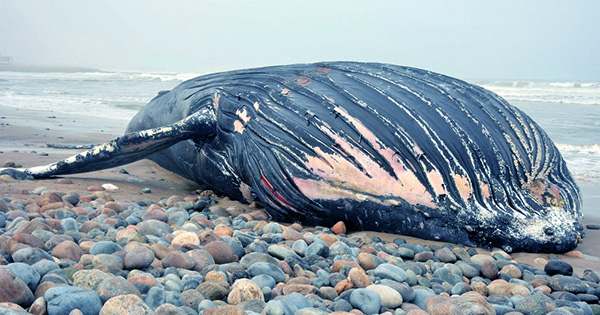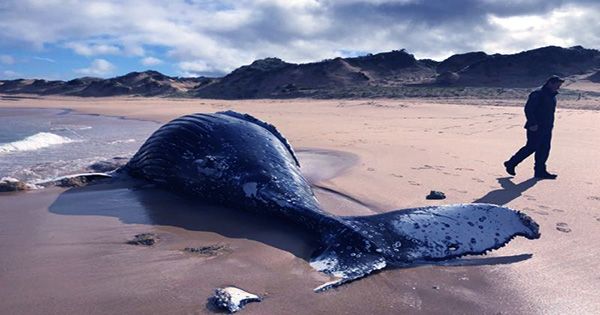One of the largest whale carcasses ever found in the Mediterranean has discovered off the coast of Italy. The Finn whale was discovering near the port of Sorrento in southwestern Italy on January 17, according to the Italian Coast Guard Guardia Costiera. The corpse brought to the attention of coast guard after alerted to a small whale called “in crisis”. Its huge body dumped in two boats in the nearby town of Naples, where marine biologists will examine it to find the exact cause of death.
The Italian Coast Guard said in a press release, “The monitoring the Coastguard’s surveillance activities in the port of Sorrento, primarily for the possible identification of visually impaired specimens and has eventually lost traces of it.”

The agency did not say how large the whale was, but noted that it was “one of the largest specimens of fin whales identified in the Mediterranean.” Reaching a length of 25 meters (82 feet), fin whales are the second largest animal species in the world, defeated only by blue whales, which can grow up to a maximum of 29.9 meters (98 feet). Most unusually, scientists have found that fin whales and blue whales can reproduce and reproduce.
Despite their huge size, the species tends to eat relatively small prey. Fin whales feed on a filter feeder, small schooling fish, squid, krill and other small crustaceans. These known as oceanic species, meaning they found in all the major oceans of the world, from the Polar Regions to the tropics.
Like many species of larger whales, the winged whale heavily hunted in the twentieth century and considered an endangered species. However, their numbers have doubled since the 1970s, and the species now listed as “weak” by the IUCN. However, the species now has a worldwide population of about 100,000 mature individuals, of which about 5,000 live in Mediterranean sub-populations. For the most part, whales can be found on the beach, trapped or found dead, although this is often a cause for concern, especially when they were found near built-up areas or busy parts of the ocean. In 2019, a humpback whale found swimming in the River Thames in London and later found dead. Necrosis revealed that most of the whales died because of collisions with ships.
















